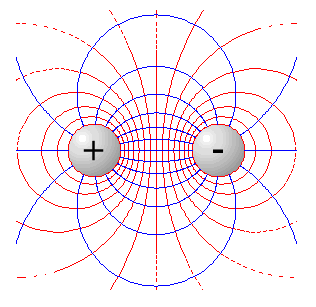Albert Einstein:
“Do not worry about your difficulties in Mathematics. I can assure you mine are still greater.”
Mathematician: It is impossible to know precisely what Einstein meant by this quote without being able to ask him. It is often taken to mean that he did not have a strong understanding of math or that he was bad at it when he was young. It is simply wrong, however, to say that Einstein was bad at math. Some of his papers were quite mathematically sophisticated, involving advanced subjects such as stochastic differential equations and tensor calculus. What’s more, he excelled in math as a youth.
The following Einstein quote may help us gain a bit more perspective:
“Since the mathematicians have invaded the theory of relativity, I do not understand it myself anymore.”
(source: In A. Sommerfelt “To Albert Einstein’s Seventieth Birthday” in Paul A. Schilpp (ed.) Albert Einstein, Philosopher-Scientist, Evanston, 1949.)
Perhaps what Einstein meant when he claimed to have difficulties in math is that he felt as though it was a struggle to learn some of the very advanced math necessary for formulating his theories, or that (compared to mathematicians or mathematical physicists) his math skills were not exemplary. However, he certainly was far, far more gifted at math than your average person. All of this being said, the original quote was actually directed at young students, so it may have reflected little more than an attempt to encourage them to persevere despite their perceived difficulties.
Physicist: Here’s my guess. Einstein witnessed the end of what might be considered the “intuitive physics” of the 19th century and before. Most of that was his own damn fault. In 1905 (Einstein’s “miracle year“) he introduced the world to both quantum mechanics (QM) and special relativity. Up until that time (most of) modern physics was something that could be easily pictured and intuited. You can draw the trajectories of moving objects, electric and magnetic fields can be modeled using field lines, you can picture heat flowing like a fluid, etc.

Electric field lines (in blue). Easy to picture.
Another Physicist: I am not familiar with the quote. I only have a wild guess. In the period between the publication of special relativity and general relativity he took some time to learn enough differential geometry to develop his ideas. This apparently did not come easily to him, and involved a lot of consultation with other people in Europe. He and Levi-Civita were in very frequent communication for example. So he may have been responding to someones comment of the sort we all hear that they we’re having a hard time with math.







I suspect that Einstein had a difficult time learning math from mathematicians and pushing around numbers symbolically without having it connected back to his physical and geometrical intuition. So concepts that would be easier for a pure mathematician to understand he struggled with. Then he was at the edge of mathematical physics for his era so he was struggling with particularly difficult math. I read it as more compassionate than egotistical. He hit the limit of his own native mathematical abilities and had to push past that with the help of mathematicians that were developing the field of differential geometry.
The answer is simple. Einstein often got letters from children. In one of these letters, a youngster complained that he had trouble with math in school. Einstein wrote him a nice letter and at one point, he reassured the student with the quote in question.
I always thought the comment, directed at non-scientists, meant that we all encounter difficulty with mathematics, and his difficulty was greater because his area of study was more complex and challenging than the studies of those people toward whom the quote was addressed. No?
“Do not worry about your difficulties in mathematics. I can assure you mine are still greater.”
This quote simply means that everyone’s problems are relative. We all have different problems and difficulties in life, but that doesn’t mean that any are more valid than others.
I had a poster of him with this quote in my remedial class. I told them since Einstein was a genius, they probably were too. Amazing what students will accomplish if you tell them they can. It’s the Harold Hill method of teaching 🎶
Einstein said this to a young neighboring girl that asked him for help with some math problems she got at school.
My opinion is.
Ha was thinking: “You will probably never be able to understand as much as me, so you will never face with such difficulties as me – more you know, more you know that more you don’t know”, when a child (or average person) have problems in simple school math.
It’s a ping back to relativity (kind of). The average person’s difficulties in math don’t really matter as in they don’t have any affect on them. Einstein however, based his whole career off of understanding math. His difficulties will start with far more advanced math than the average person, but having those difficulties has a larger impact on him.
any one have a verified document of this quote
well, his hipppocampus was immence and so was his visual -motor memory….
he was a tank… savant like tank even most of his adulthood….
he know that he could tap more into observations and learning than anyone around… that is how he knew…..that seems hypothetical, but litterature seems to keep noticing consistant associations between hippocampal volume, and memory, and parietal volumes with mathematical prodige….
My math skills are pretty good as long as they can be related back to some physical analog, something that is provable, tangible, that actually exists and can be experimented upon, but when the conversation moves into the purely theoretical, or speculative, it’s best if I leave the room.